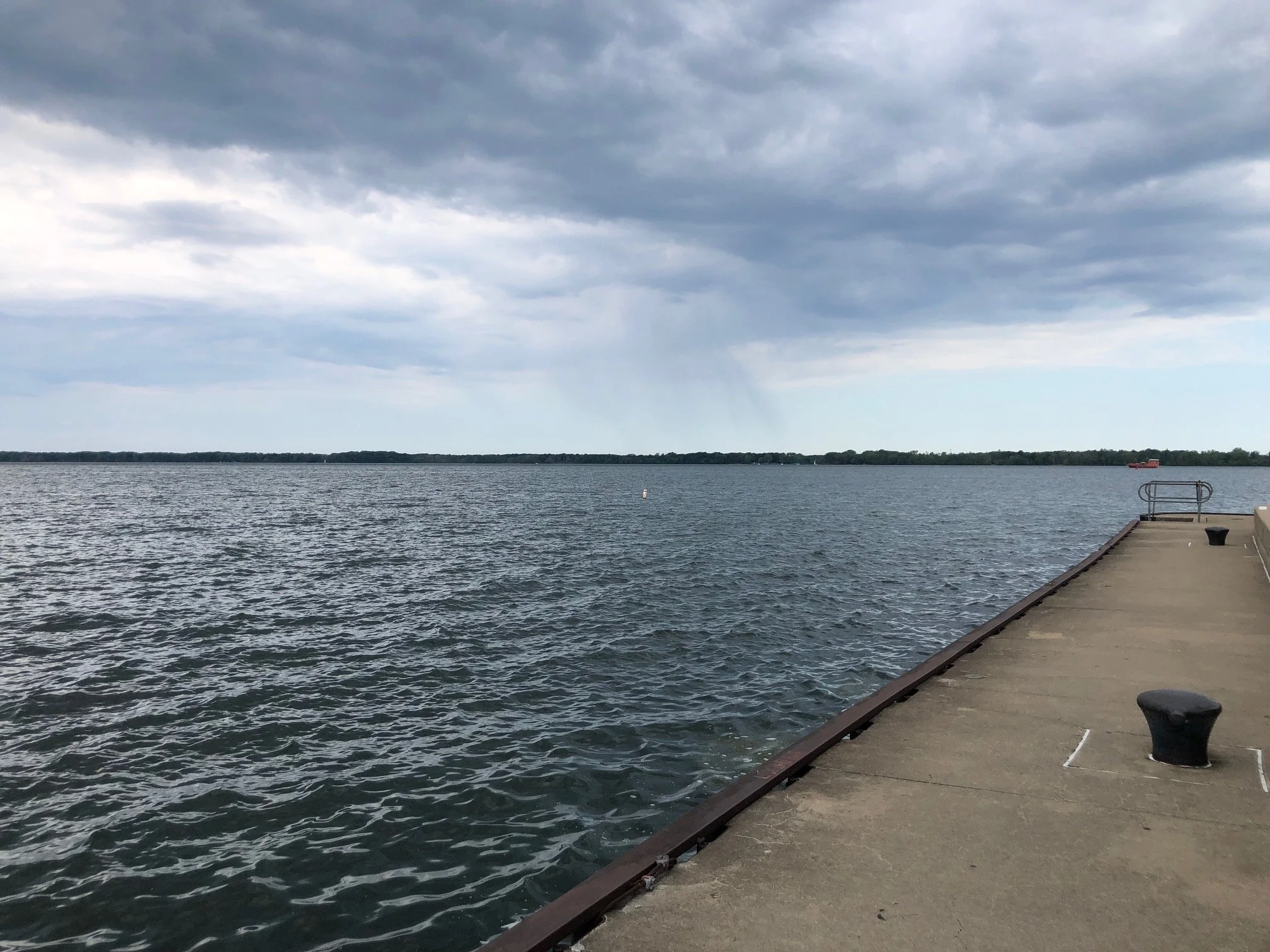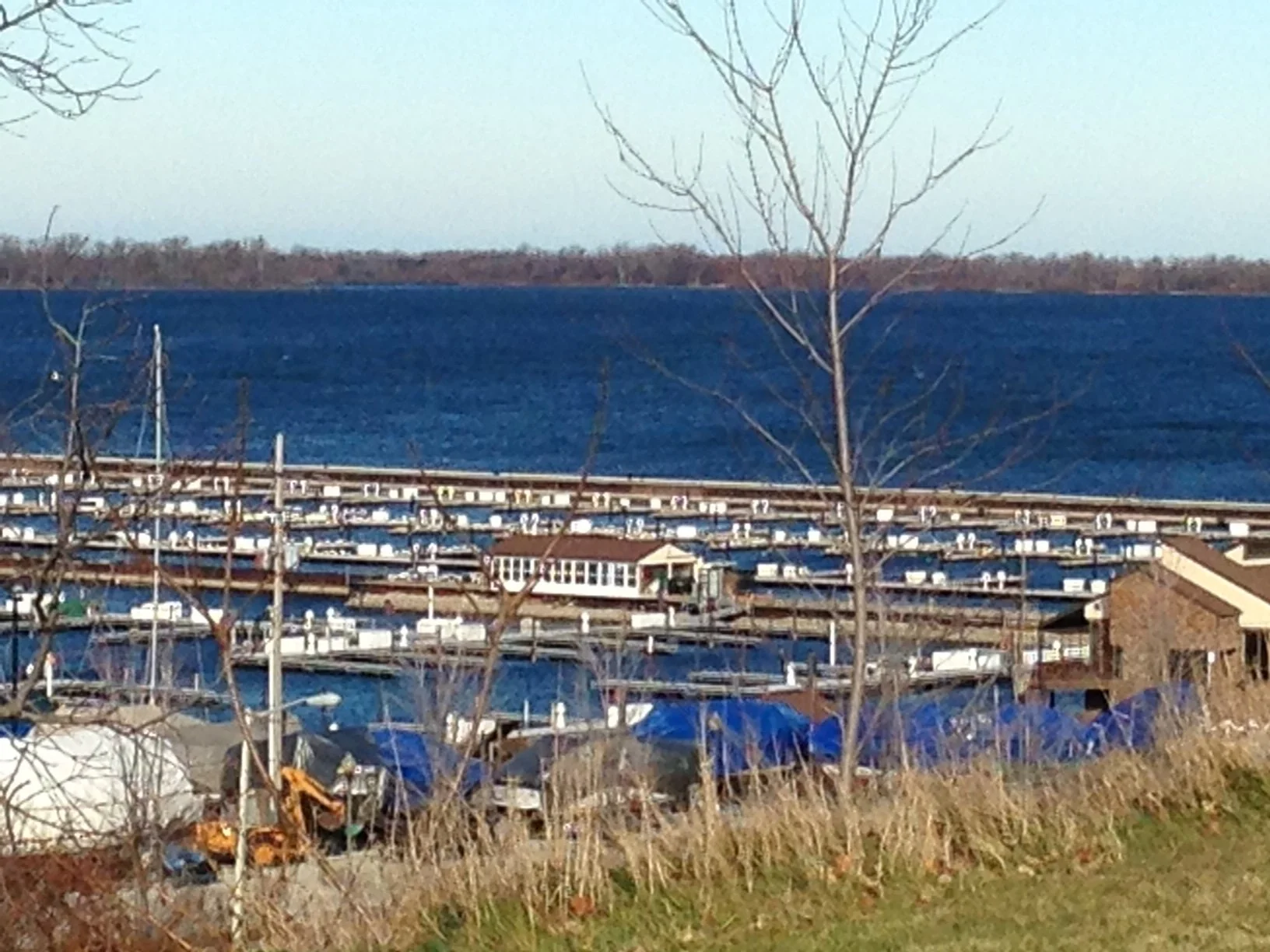Know and Love the Land and those who Inhabit it with us
by Evan G. Clendenin
A gracious moment of wonder opens new, appreciative awareness of the interconnected life of which you are part. It leads you on a path of knowing and loving the land and those who inhabit it with us.
I used to walk daily along the shore of Presque Isle Bay. As the seasons changed, I walked, ran, fished, cut willows to weave, tried planting trees. I saw underwater clouds of gizzard shad, as well as bowfin, steelhead, mink, beavers, various herons, warblers and all manner of waterfowl. I found old steel rails and bits of industrial detritus. I talked to folks on piers, like Dobbin’s Landing.
I got to know a fisherman, whom I also knew from loitering at the cathedral food pantry. Over many weeks of longer conversations over foam cups of coffee, he shared that he had once been a timber-cutter, but a heart condition left him unable to work. Now he fished, something to do. I would see him many days at Dobbin’s landing or along the way, carrying bucket and fishing pole. He often had a trustworthy report about how the yellow perch were biting. He gave the fish away to friends who enjoyed eating them.
The theologian Michael Green wrote about the spiritual attitude and practice of discernment as one characterized by growth and maturation in knowledge born of love. We grow in the capacity to love in deed as we come to grasp more truly the everyday ways, needs, tendencies, the true being of those we know as spouses, friends, children, neighbors, co-workers in our lives. Green sees this personal quality of loving knowledge in our human relationships as mutually reflective of our relationship with God.
This personal quality of knowing and loving also shapes how we relate to the land and those creatures who live there. Our attention and efforts become a path of prayer that betters and beautifies creation. Separated from such an integrating path of loving knowledge, data about ecological and social harm just piles up, overwhelming our faculties to inwardly digest it. Life-hacks and more data won’t save us. An imbalanced education into the ‘awareness of living in a world of wounds’ overwhelms many of us today with a sense of grief. We might balance this out with a present-minded sense of delight, and gratitude for others, ourselves, the many creatures of earth, and living on earth. And most of us are just trying to get by, put food on the table, and still yearning for a vine and fig tree or a little patch of green to enjoy.
One day I was walking by a grassed hillside above the lakeshore, slated to be turned into a giant billboard. I stopped to talk to some women who turned out to be gathering wild garlic. They shared that they had come to Erie more recently from another part of the world. As I bid them goodbye, they handed me a bag of garlic. I’ve noticed people who see a green patch or fruiting trees in the midst of urban/suburban america, and see something they know and love. And they try to make good use of it.
You might simply inquire about the land you know and love. And you might respectfully inquire about those who share it with you. In what ways do they know it and love it? The quality of knowledge born of love, and the love that emerges with truer knowledge of the land and those who inhabit it, confers a quality of humility, that is, a grounded knowing open to see how another might see. They enrich what you see and know, and this encounter will enrich your heart’s capacity for loving effort. You may become part of a new conversation, or discover yourself part of a much longer and broader one, about what it means to live well in a place, and to tend it in righteousness and peace. This knowledge will change you, and your efforts.

